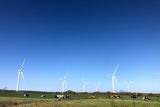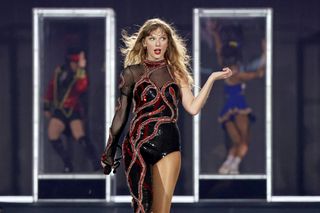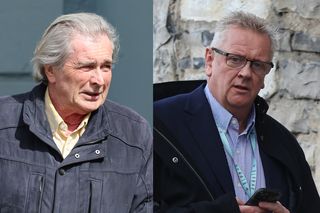My Big Idea: Underwater tech that's helped David Attenborough and space missions
Adrian Boyle, chief executive of Cathx Ocean
Kildare-based Adrian Boyle (49) is co-founder and chief executive of Cathx Ocean, which builds lighting and camera systems for underwater vehicles as well as software that interprets underwater images.
"I set up Cathx Ocean with my co-founder Michael O'Flynn, the company's chief technology officer, in 2009. We had worked together for many years prior to that. My background is in engineering and I have a PhD in lasers and physics from Trinity College Dublin.
We now employ 23 people at our design and manufacturing facility based in Kildare, with additional office locations in Aberdeen and Boston.
Our initial focus was on building lighting systems for unmanned, underwater vehicles, the type that might be used for scientific research purposes or for underwater construction or the monitoring of pipelines.
Despite being hugely expensive to run - $100,000 a day kind of thing - most of these vehicles could only move at a very slow pace because they simply couldn't see properly.
By improving their lighting systems we could help to improve the efficiency of the vehicle. Our LED lighting range for subsea vehicles launched in 2012.
You can see the technology in use in the BBC's 'Great Barrier Reef' programme with David Attenborough; in a scene where he encounters a sea turtle while in an underwater vehicle, our lights were used.
It has also been used in the recovery of space shuttles from under the sea.
Other users of our technology include major oceanographic institutes, salvage companies, oil and gas companies, offshore contractors, navy and police divers and underwater vehicle manufacturers.
After the success of the lighting system we began designing subsea machine vision camera and laser systems, with the aim of helping clients better capture images under the water. Successful trials of this system were completed in the North Sea in 2014.
The biggest challenge to building the business has been convincing our customers of the need for it.
In the first three years, many of the companies who we were targeting just weren't particularly interested in innovation or pushing efficiencies.
That all changed when the price of oil began to fall and anyone involved in oil and gas exploration or extraction had to focus on ways to save money.
Our latest project is a step removed from the hardware we are known from.
It is software which can "read" images collected underwater.
Many of our clients collect vast amounts of images which then need to be processed - they might have hundreds of cameras filming a large underwater area in an attempt to spot a certain activity, for example.
This means people then literally have to sit there and view hundreds of hours of footage to detect what they are looking for.
We are building software which will automatically detect whatever it is the client is trying to monitor, to remove the need for people having to go through the footage manually.
The Marine Institute has been a huge supporter.
Enterprise Ireland have also been fantastic and are an investor in the company.
We are currently deploying a version of our system into Galway Bay with the Marine Institute, where it will stay for two years.
We want to help position Ireland as a centre of excellence for marine innovation.
The "blue economy" presents an enormous opportunity in key economic areas including food and aquaculture, marine energy and of course technology.
We are an island nation after all."
Adrian Boyle will be speaking at the Our Ocean Wealth conference taking place in Galway on July 1.
Join the Irish Independent WhatsApp channel
Stay up to date with all the latest news














